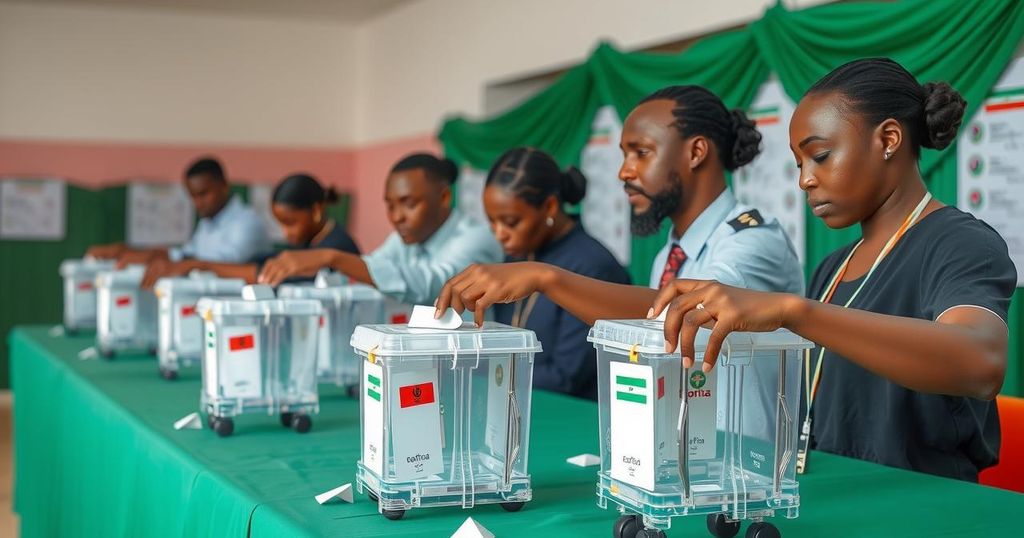Comoros Holds Boycotted Parliamentary Elections Amidst Political Discord

Comoros held a contested parliamentary election on Sunday, with significant opposition boycott due to accusations against President Azali Assoumani’s government regarding authoritarianism and electoral integrity. Approximately 330,000 citizens are registered to vote in a context of political disillusionment. Opposition leaders claim a low turnout is anticipated based on recent electoral grievances.
On Sunday, Comoros conducted a parliamentary election which faced a boycott from several opposition leaders, who accused President Azali Assoumani and his ruling party of increasingly authoritarian practices and raised doubts regarding the electoral integrity. The election is set to fill 33 legislative seats, with results anticipated next week. Despite approximately 330,000 registered voters in the nation, opposition parties foresee a low turnout due to widespread disillusionment with the political process.
In the previous parliamentary election of 2020, Assoumani’s Convention for the Renewal of the Comoros secured 20 out of 24 contested seats. Cast against this backdrop, Assoumani voted in his hometown of Mitsoudjé on Grande Comore, underlining his continued influence. Controversially, the opposition declared the 2020 elections a “masquerade,” citing lack of fairness, and his recent election to a new five-year presidency last year further ignited allegations of electoral fraud and subsequent protests.
The boycott included the Juwa Party, led by former President Ahmed Abdallah Sambi, which similarly refrained from participating in the 2020 elections. The Comoros archipelago has a history marked by military coups since attaining independence from France in 1975, with Assoumani originally seizing power in 1999. Returning to presidency in 2016, he has since circumvented term limits via constitutional changes. An analysis by the Africa Center for Strategic Studies characterized Assoumani’s governance as increasingly repressive, indicating a trajectory toward non-competitive electoral practices.
Authorities proceeded with the elections despite the looming threat of Tropical Cyclone Dikeledi, which was forecasted to affect the region on the same day.
The political climate in Comoros has been tumultuous since its independence from France in 1975, characterized by numerous military coups and authoritarian rule. Azali Assoumani, originally a military officer, has been a significant force in the country’s politics since first taking power in 1999. His successive terms have been marred by allegations of electoral fraud and manipulation, escalating tensions between the ruling party and opposition factions. The parliamentary election aimed at filling seats in the legislature amidst these political challenges and ongoing discontent from the populace highlights the fragile state of democracy within the archipelago.
In summary, the parliamentary election in Comoros highlights the ongoing political discord and challenges to democracy within the nation, as opposition parties actively boycott the process amidst allegations of electoral fraud and authoritarianism. Assoumani’s administration continues to face scrutiny over its governance approach, particularly as the country prepares to contend with the implications of a low voter turnout and the potential fallout from a disputed electoral process. The historical context of Comoros further complicates its democratic journey, suggesting a need for urgent reform and engagement with the electorate.
Original Source: www.seattletimes.com








